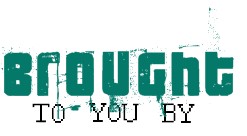QCF: The Legend of Korra

 hen it comes to licensed properties, it’s safe to say that video game adaptions have come a long way since the dark ages of the LJN published trash all those years ago.
hen it comes to licensed properties, it’s safe to say that video game adaptions have come a long way since the dark ages of the LJN published trash all those years ago.
I mean, there’s Telltale’s work on the Walking Dead and Game of Thrones, Warner Bros’ Shadows of Mordor and Batman Arkham Knight, and lest we not forget; Ubisoft’s swan dive to publish the unexpectedly amazing South Park: The Stick of Truth…I could go on. The point I’m making here is that license games are steadily scrubbing away the nasty stigma that’s plagued them for so long, and it’s really nice.
However, there’s are still the occasional exceptions to the recent trend, ones that falls victim to all those familiar offenses that irrevocably render their once promising future as a video game into nothing more than a hot bag of shit that even a purist fan of the property couldn’t love.
In a painful twist of fate though, the software in question that’s guilty of all these cardinal sins may also just be one of the most unexpected disappointments to have surfaced in 2014 to begin with. Renowned for their exemplary work within the Action genre, Platinum Games were handed the reins to Nickelodeon’s Legend of Korra; and in spite of all of the resources, talent, and enmities the famed Japanese team had at their disposal—the finished product they’ve released may easily just be the worst title the studio has ever developed.
Even with all of the advantages of afforded by the caliber of the source material and the pedigree of the team heading it, this plucky character action title falls short on so many levels, in fact It’s astonishing that Platinum willingly shipped The Legend of Korra to store fronts in the shape that it’s in.
The kicker about the whole things is that all of the concepts in Korra’s core design are fundamentally sound—they’re just terribly executed.

Gameplay features a heavy emphasis on feverish combat within the same vein of Platinum’s notable works like Bayonetta and MGS: Revengance, only without any of the polish or refinement that make them so appealing let alone functional. Controlling the elemental protagonist is a sluggish exercise of awkward pacing that’s further restrained by sloppy maneuvering and targeting the likes of which would lead you to think that the Avatar has motor skills on par with a drunken Mick Jagger.
Regardless of the fact that you have four distinctive combat styles, every attack you launch is intolerantly stiff and dawdling in motion. Adding further insult to injury, whatever melee you do happen to launch, is constricted to the commitment of completing an automated string of attacks that can’t be interrupted or retracted in any way—leaving you wide open from any angle that isn’t directly in front of you.
There’s no real depth to the layout either. All of the combat is based around a weak attack, and a strong attack, complimented with the defensive options of being able to deploy a quick-time block that will guard against damage from enemy attacks, or an evasive roll that run a cooldown that stymies’ movement temporarily if used too many times in a row. While you can exchange unique combos through timed transitions between styles, the likelihood of actually pulling of the kind of finesse that such complex tact would demand is far more impractical than it useful when you’re out on the battlefield.
 The effect that these flaws leave on combat can vary anywhere from annoying to downright broken at times, especially since crowd control against enemy mobs is nearly impossible for any encounter where you’ll fight more than three (which is usually the case three fourths of the time to begin with anyway.)
The effect that these flaws leave on combat can vary anywhere from annoying to downright broken at times, especially since crowd control against enemy mobs is nearly impossible for any encounter where you’ll fight more than three (which is usually the case three fourths of the time to begin with anyway.)
Considering the heavy emphasis on Legend of Korra placed on character growth, I really wish I could say that these faulty dynamics gradually diminish with every upgrade and advancement you make, but then I’d be lying.
When the game first unfolds, one of the main hooks to this system is that the chosen warrior gets all of her bending powers nerfed down to the bare basics of hand-to-hand combat, stifling her capabilities until she can slowly earn her iconic talents back as you progress the story. The sad thing about it is though as that when you do retrieve your ability to manipulate an element, it’s hardly a difference maker in the grand scheme of fundamentally botch fighting system.
Although the campaign briefly treats you to what it’s like to have full access to our heroine’s bending powers, the variance in the styles from powered, to non-powered is mostly negligible. Regardless of the progress you make into collecting and growing the distinctive disciplines, the bending techniques are merely vapid extensions to the pre-existing base form of the styles they’re attached to. As time in the story goes on, you’re able to raise any of the styles to the next level after so much experience is earned, but it still doesn’t really alter or add any new layers of technique or form to the fighting skill that’s notably remarkable in the slightest.
On top of the bland development that the styles are founded upon, the absence of check-and-balance system that regulates battle advantages and disadvantages between certain bending match ups—meaning that using water bending against a fire bending enemy is going to give you kind of leg up on skirmish, which is just plain stupid. Also be sure to prepare for the familiar rehashing of enemies once you reach a certain chapter, because it appears that Platinum didn’t think that recycle the same squad of baddies for the fourth or fifth time would seem tediously repetitive at all.

If there’s anything redeemable to be found here is that the license is faithfully represented in presentation, the art style of the game beautifully captures the essence of the beloved carton that it’s based upon. The game also features an original plot instead of dipping into any of the narratives from the show, and even comes complete with its own set of cut scenes and lines of dialogue to propel into its own full-fledged edition within the fiction of the franchise, but admittedly, it’s also shares a modicum of its own problems.
One of the most appealing elements about the Avatar brand is it’s incredible characterization the cast it leads, and watching how they progress an individual, even within the span of an episode. The plot here misses that mark pretty hard, a majority of the events and narrative majorily focus around Korra, with the other characters being relegated as props or dressing for the setting, almost as if they were a fixture of décor that required an obligatory cameo for the sake of lazy fan service.
Regardless of whether you’re a fan of Platinum, The Legend of Korra, or both for that matter; the only bounty you’ll get out of this mess is heartbreak, disappointment, and a fifteen dollar sized hole in your bank account—stay away at all costs.

 Nickelodeon,
Nickelodeon,  PS4,
PS4,  Platinum Games,
Platinum Games,  The Legend of Korra,
The Legend of Korra,  This is Awful,
This is Awful,  What Happened? | in
What Happened? | in  QCF Reviews
QCF Reviews 









